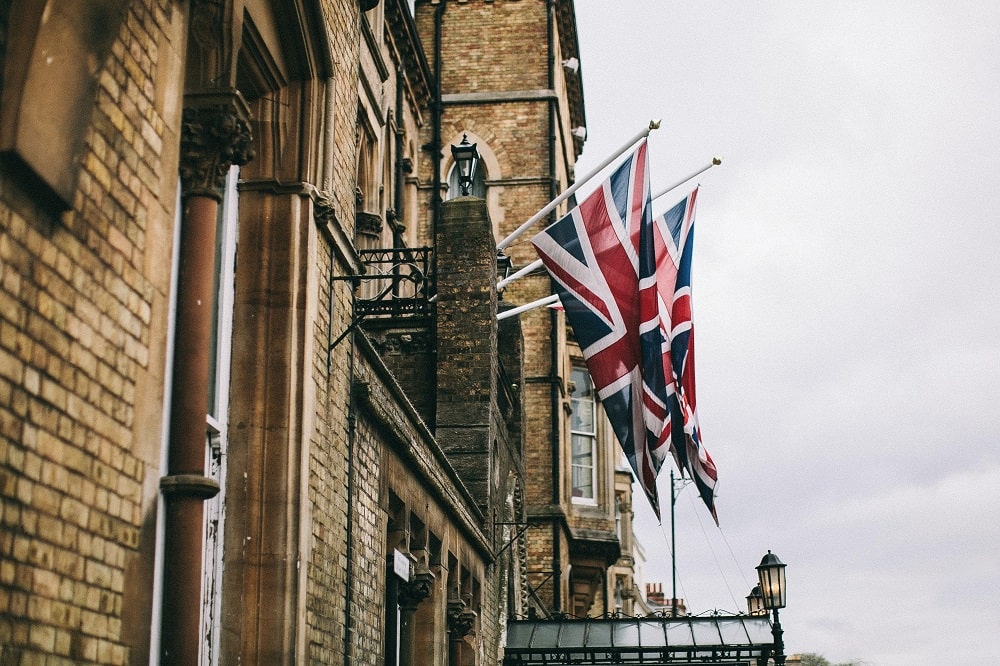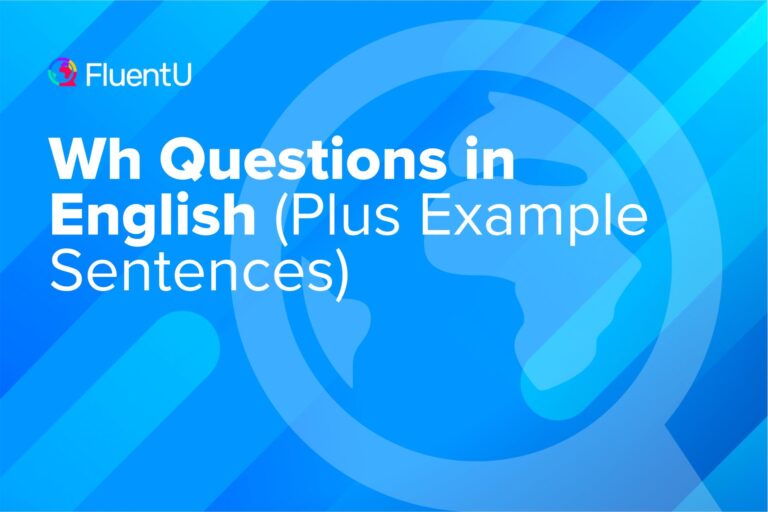How to Speak with a British Accent

Many people have a romantic or glamorized idea of what British English sounds like, but the truth is that there are many different kinds of British accents, sometimes even different from neighborhood to neighborhood in dense urban areas like London.
In this post, we cover the top 11 tips for how to speak with a British accent, the main linguistic features of the British accent, the types of British accents, British English slang and, of course, practice resources so you can perfect your very own British accent at home.
Download: This blog post is available as a convenient and portable PDF that you can take anywhere. Click here to get a copy. (Download)
Top Tips for Speaking with a British Accent
Whatever you hear about the features of the British accent, it’s important to remember that there are many accents used on the British Isles, and some sound completely different than others.
Here, we’ll mostly discuss the features of the Received Pronunciation (RP) British accent, which is often considered the most standard British accent, but also some features of other London accents.
Here are some top tips from language experts about how to sound British when you speak English:
1. Use Long /ɑː/ Vowel Sounds
British English prefers long vowels for /ɑː/. This is seen in words like “car,” “bath,” and “fast,” which use an “ah” sound for the A.
2. Drop Most R Sounds
British English is non-rhotic (dropping the /r/ sound unless a vowel comes after it), which means they usually don’t pronounce their Rs, otherwise known as “silent.”
This is evident in words like “car” or “better” which sound more like “cah” and “bettah.”
3. Pronounce T Sounds as /t/
Unlike in American English, where many T sounds are turned into D sounds (like in “water” or “later”) almost all T sounds in British English are pronounced as /t/.
4. But Use Some Glottal Stops Occasionally
In some cases, T is replaced with a glottal stop, which is a sound produced by momentarily closing the vocal cords, causing a brief pause in the flow of air.
This is evident in words like “bottle” or “little.” These end up sounding more like “bo-el” and “li-el.”
Since this is one of the more complex tips to explain, here’s a good simple explanation video about glottal stops:
5. Remember Word Stress
Pay attention to which syllables are stressed in words. RP tends to have a clear stress pattern, with the stress often falling on the first syllable of words such as “water” and “friendship.”
6. Avoid Contractions
In formal RP speech, contractions like “can’t” or “won’t” are less common compared to other English accents, like American.
7. Don’t Pronounce Final G
In British English, the final G in words like “going” or “evening” is often pronounced as a soft -NG almost like an -N sound.
8. Use Linking /r/ Sounds
You add an /r/ sound if a word ending in R is followed by a vowel sound. For example, “four eyes” sounds like “four rise.” Doing this helps to connect the speech and makes the words flow better.
9. Drop H Sounds
Many /h/ sounds are silent. For example, “home” is pronounced “ome.”
10. Use TH-fronting
This means that many speakers substitute /θ/ (like in “thanks”) with F. This is especially true in East London, where “thanks” is often pronounced “fanks.”
This one is a great trick to make you sound super local!
11. Use Short /o/ Sounds
In words like “cot” and “what” and “flop,” the /o/ sound is very fast and very short.
Here’s a great video from a non-native English speaker in which she explains how she mastered her British accent:
Main Features of the British Accent

Remember, as stated above, that most of these features refer to the RP version of the British accent.
Vowel Sounds
RP English has a diverse set of pure vowel sounds, including /i/ in “sheep,” /ʊ/ in “book” and /ɔ/ in “thought.”
Diphthongs (two vowel sounds spoken together) like /aɪ/ in “price” and /eɪ/ in “day” are very prevalent.
The /ə/ schwa sound, which sounds like “uh,” appears in unstressed syllables, as in the first syllable of “banana,” which sounds more like “buh.”
Furthermore, RP maintains a clear distinction between long and short vowels, impacting word meaning. For example, “beat,” which has a long I vowel versus “bit,” which has a short I vowel sound.
Consonants
RP English is non-rhotic, omitting R sounds at the end of words. For example, “car” sounds more like “kah.”
It’s also employs T-glottalization, replacing the T sound with a glottal stop (a short stop in airflow from the vocal cords) in certain contexts, so a word like “butter” becomes “bu-ah”
There is also TH-fronting, substituting /θ/ (like in “thanks”) with F. This occurs especially in London, resulting in “thanks” being pronounced as “fanks.”
Last, there is H-dropping, where H sounds are omitted, in many accents. For example, “home” is pronounced “ome.”
Intonation and Stress
RP English employs non-rising intonation in statements, and falling pitch, towards the end of sentences.
In contrast, yes-no questions often employ rising intonation, where the pitch rises at the sentence’s end.
RP follows a stress-timed rhythm, with even spacing of stressed syllables, emphasizing word stress on the initial syllable of many words.
Also, contrastive stress (stressing a word to emphasize it) is used to convey meaning and importance.
Reduced vowels and elided (left out) sounds in rapid speech add complexity to RP’s intonation and stress patterns, contributing to its rhythmic and nuanced pronunciation.
Types of British Accents

Experts say there are over 40 unique British accent varieties in the British Isles and its overseas territories. Here are a few of the most spoken:
Received Pronunciation (RP)
Received pronunciation is the standard form of British English pronunciation, based on educated speech in southern England.
As the Royal family speak RP, it’s referred to as “the Queen’s English” or “the posh accent.” Though the majority of Brits don’t sound like that, RP is widely portrayed in movies and on their international news service, BBC.
The “Harry Potter” series and “The King’s Speech” are two examples of RP. You can also hear RP in this lovely speech by Emma Watson at UN’s HeforShe Campaign in 2014 or this speech by Liz Truss as shared on our YouTube channel:
The Cockney Accent
The Cockney accent is associated with the working class in East London. Two of the most recognizable features of Cockney speakers are the dropping of the H sound in front of words like “hospital,” and the replacement of the TH sound with F
Sir Michael Caine, the English actor, is famous for keeping his Cockney accent. You can listen to an interview he did with The New York Times here.
The Welsh Accent
Though the Welsh have their own language, they also speak English in a Welsh accent.
If you want a comparison between the English accent in the South of England and the Welsh accent, “Gavin & Stacey” is a fun show to watch. Check out this episode of “Awkward Breakfast” on BBC. The first speaker is Rob Brydon, a Welsh actor. You can hear him talking about condiments for around 45 seconds. Smithy, the character that comes right after and who is played by James Corden, is English. You might recognize him and his accent from his famous “Carpool Karaoke” series.
The West Country Accent
Spoken in the west part of England, the West Country accent has held onto its unique features partly due to its isolated location. You can hear the West Country accent in this informative video.
The Scouse Accent
The Scouse accent belongs to the people of Liverpool. Though it’s limited to a small area, the Scouse accent is one of the most famous in England. One thing you might notice when listening to a Scouse is their nasal (from the nose) sounds, such as when a T sounds like an R. You can listen to the Scouse accent in this interview with Liverpudlian legends The Beatles.
The Yorkshire Accent
This is the accent found in the Yorkshire area, in Northern England. One of its features is the use of the short A in words like “class” instead of the long A of the Southerners. If you want to check out a Yorkshire accent, “The Full Monty” is a great comedy to watch. It shows industrial communities in Sheffield in the ’80s. You can watch the trailer here.
The Geordie Accent
The Geordie accent is another very famous one from the North of England, in and around Newcastle. Because of its closeness to the Danish Peninsula, the Geordies have some words that sound like modern Danish. For example, bairn and barn are the words for a child in Geordie and Danish respectively (in that order). If you’re in the South of England, you might hear how people struggle to understand the Geordies, just like in this clip from the famous comedy show “I’m Alan Partridge.”
The Scottish Accent
This is the accent you’re most likely to hear when you travel around Scotland. One of the most noticeable patterns in Scottish English is the change of the O sound to the diphthong AE. For example, “stone” is pronounced “stane” in Scottish English.
Another feature is the cutting off the T sound at the end of words like “it” or “cannot.” If you want to check it out, listen to Ewan McGregor’s accent in the movie “Salmon Fishing in the Yemen” or just watch this interview with him and Emily Blunt about the movie (and keep in mind that Ewan McGregor’s accent is a light one!)
The Irish Accent
Last but not least, the Irish accent is from Northern Ireland and the Republic of Ireland. It varies across the island of Ireland, though. If you want to have a taste, check out “In Bruges.” The two lead actors, Colin Farrell (as Ray) and Brendan Gleeson (as Ken) are Irish. Here’s the trailer.
If you want to hear more British accents, this video shows one woman doing 17 accents very accurately. It’s pretty impressive:
British Slang Words to Sound More Local

Now that you have a better idea of how much variety there is in the way people sound in Britain, let’s have a look at a few British slang words that might make no sense to outsiders.
Skint — Broke
If you’re broke, or low on money, you’re “skint,” which isn’t someone anyone wants to be.
Example:
“Fancy going to the pub tonight?”
“Nah, I shouldn’t. I’m skint.”
Naff — Silly
Something that’s bad, distasteful or just plain stupid is “naff.” Again, this is another one you want to avoid.
Example:
“What a naff comment!”
Yonks — Long Time
Say you haven’t been home to visit your parents in 10 years. You could say it’s been “yonks.”
Example:
“I haven’t seen him for yonks.”
Minging — Very Ugly
Ugly is one meaning, but “minging” can also mean unpleasant, dirty, smelly or almost any other negative adjective when it comes to looks and cleanliness.
Example:
“Man, his toilet is minging.”
Chinwag — Informal Conversation
You know how sometimes when you’re having a conversation on the street with someone, they tend to nod as you speak. Look at that chin wagging up and down.
Example:
“Did you talk to Sarah?”
“Yeah, but just a chinwag about the girls at work.”
Knackered — Tired
“Knackered” could even be considered to mean “exhausted,” so on the far side of tiredness.
Example:
“I’m knackered. Let’s go to bed.”
Bobbins — Nonsense
You don’t want anyone to accuse you of talking about this, unless you’re telling a tall tale.
Example:
“Stop talking bobbins.”
Snog — Kiss
The French invented the French kiss, but it’s the British who gave it this cool slang name.
Example:
“He often brags about snogging the hot girl from his class, but I doubt it’s true.”
Curious about more cool British slang? Then check out this post that covers 18 essential British slang words.
Great Resources for Learning to Speak British English

Now that you’ve learned all about the British accent, we figured you may want some resources, so you can practice it yourself. Check out these helpful resources for at-home help:
The British Council offers face-to-face lessons in their learning centers. There, you can make use of a library with many books and audio resources to learn the different British accents. You can also access lots of online courses and learning tools right on their website.
FluentU is a language learning program that teaches English with captioned web videos like news clips and movie trailers. You can find FluentU videos in a variety of accents and dialects, including British ones. For example, there are videos that explain the differences between types of English, like this one about accents in the British Isles, or this one that compares British, American and Australian English.
BBC Learning English offers many online courses for English learners. To improve your speaking skills and acquire a British accent, you can start with the basic course “The Sounds of English,” and then move on to “Tim’s Pronunciation Workshop.” You should know that the English taught here is the standard English accent, or “received pronunciation.”
Try out our top 11 tips to sound more British and see how you do, and if you want to know more about British English speaking, head to the resources above and start learning your own British accent.
Or queue up a great British TV show to see and hear this accent in action!
Download: This blog post is available as a convenient and portable PDF that you can take anywhere. Click here to get a copy. (Download)
And One More Thing...
If you like learning English through movies and online media, you should also check out FluentU. FluentU lets you learn English from popular talk shows, catchy music videos and funny commercials, as you can see here:
The FluentU app and website makes it really easy to watch English videos. There are captions that are interactive. That means you can tap on any word to see an image, definition, and useful examples.
For example, when you tap on the word "searching," you see this:
Learn all the vocabulary in any video with quizzes. Swipe left or right to see more examples for the word you’re learning.

FluentU helps you learn fast with useful questions and multiple examples. Learn more.
The best part? FluentU remembers the vocabulary that you’re learning. It gives you extra practice with difficult words—and reminds you when it’s time to review what you’ve learned. You have a truly personalized experience.
Start using the FluentU website on your computer or tablet or, better yet, download the FluentU app from the iTunes or Google Play store. Click here to take advantage of our current sale! (Expires at the end of this month.)











